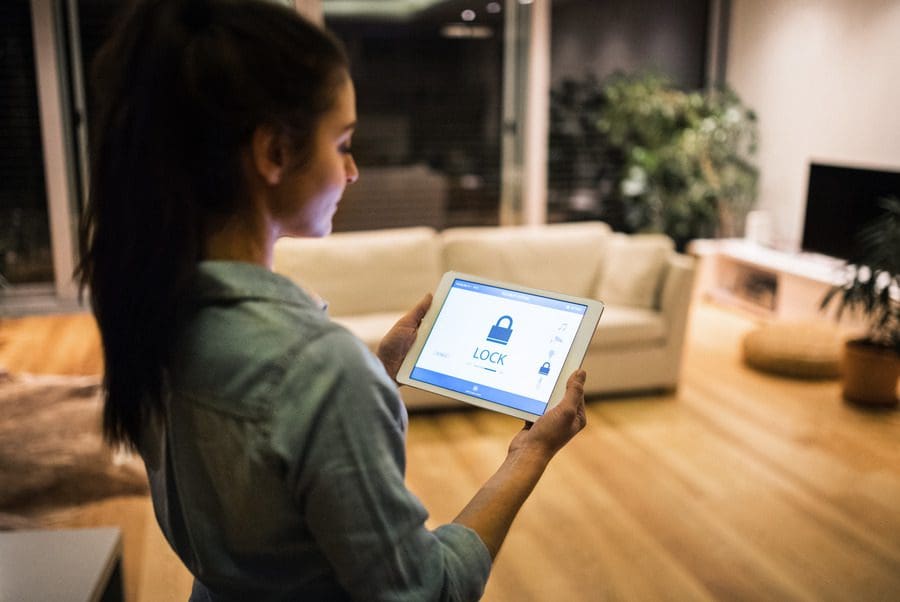There are a ton of reasons why you should consider a smart home security system. But, like most things on the market, there are seemingly endless options, making choosing one overwhelming. Let’s discuss the pros and cons of having a smart home security system and a few of the most popular options.
Pros of a Smart Home Security System
- Little to No Monthly Fee: Many smart home security systems charge you for the equipment, and that’s where it ends. Some systems charge a low monthly fee for certain perks, such as cellular backup and stored video footage.
- You Can Rule Out the Middleman: When you have a professionally monitored system, someone typically contacts you when there is an alert to see whether you need emergency assistance. When you control your system and catch something happening, you can immediately spring into action and not waste a second of precious time.
- It’s Easy to Move: If you’re a renter or someone who moves frequently, you can easily disable smart home security systems, pack them up, and take them to your next house or apartment.
- Flexibility: If you no longer want the system or prefer to upgrade or change something, you can do so on your own terms.
Cons of a Smart Home Security System
- No Backup: Let’s face it, technology is only great when it works, and you can never rule out a missed alarm or lost cell service.
- No Equipment Technician: Typically, installing a smart home security system is pretty straightforward, but it’s not crazy to think you might have questions during the process. A helpline or 24/7 chat may be available, but sometimes that’s not as helpful as having an expert. If you are struggling with operating your smart home device, consider contacting a local AV company that can help.
Smart Home Security Systems
When we think of home security, Ring is among the first names that come to mind. It started with the Ring video doorbell, but now the brand offers complete home security systems, accessories, smart lighting, and more with no contract required. You can opt to self-monitor or have your system professionally monitored (for a fee). The downside is that the base plan doesn’t include two-way audio, which is a huge selling point. You can control the entire system via the app, and add-ons and equipment are relatively affordable.
Arlo is another great option for a smart home security system that can easily be installed and controlled via your smartphone. The brand offers outdoor, indoor, mobile, and baby-monitoring systems. Customers have up to 4K-quality video history as well as continuous video recording. But while Arlo will give you real-time alerts on any motion detected, you have to wait a few minutes before you can see the activity unless you pay a monthly fee. Unfortunately, Arlo does not offer door and window sensors or glass-break detectors.
SimpliSafe is another home security system that does not require a monthly contract – and for the standard package, you shouldn’t pay more than $20. A major perk to SimpliSafe is that it offers 24/7 cellular monitoring, so even if you don’t have a home line, you can still call for help. And it isn’t just for break-ins; it can also detect flood, fire, and carbon monoxide. The downside? The upfront cost may be higher than the above options.
Nest thermostats and smoke alarms were all the rage a few years back. But since then, the brand has expanded into full home security systems, including keyless door locks, surveillance cameras, video doorbells, speakers, and more. Plus, Nest is now under Google’s umbrella, which means you can seamlessly integrate it with other devices! The only cons are the equipment cost and the lack of glass-break sensors or panic buttons.
Sources: Eco Smart Home Pros, A Secure Life






